Modern Americans are hazy about our history. With the Fourth of July on the horizon, I thought a cowboy could bring clarity to the origins of this popular holiday.
Showing posts with label cowboys. Show all posts
Showing posts with label cowboys. Show all posts
Friday, June 26, 2020
Thursday, February 13, 2014
Roundup Magazine reviews The Return, A Steve Dancy Tale
A book review of The Return, A Steve Dancy Tale appears in the February issue of Roundup Magazine—a publication of Westerns Writers of America.
After a plot summary, C. K. Crigger writes, “Well-written,
fast-paced, interesting characters—what
more can a reader want? Well I, for one, was taken with the excellent
description of the late 1800s New York City. The look at Edison’s lab in Menlo
Park struck me as right on, and putting the Western mentality into staid New
York Society seemed fresh.”
Well, that made me
feel good.
Monday, January 27, 2014
Why are murder mysteries written in first person?
Murder
mystery fans like to figure out whodunit. It’s why the genre is fun, and enthusiasts
hate it when the author rigs the game. No undisclosed facts or coincidences can
miraculously solve the crime. Everything known to the detective must also be
known to the reader. The most effective way to share information is to tell the
entire story in first person. First person requires the narrator to be present
in every scene, so everything she sees, the reader sees. Thus, most murder
mysteries are written in first person in order to insure a fair challenge.
All the
facts must be commonly known, but it’s legitimate to shield the reader from the
thoughts of the detective. This is why many authors don’t use the protagonist’s
point of view. The first person character can be a narrator sidekick, like in
the Sherlock Holmes mysteries which are told by Dr. Watson. This is a handy
device for facilitating a surprise ending. Although readers get to know all the
facts, they don’t see the detective mentally unravel the incongruities of the
mystery.
When I was
figuring out a plot for the third Steve Dancy Tale, it occurred to me that I
had all the elements in place for a murder mystery. I had started the series in
the first person and another main character worked for the Pinkerton National
Detective Agency. Everything fit for a murder mystery disguised as a western.
Murder at Thumb Butte is a murder mystery that just happens to occur
in the Arizona Territory. Since there were plenty of murders in the Old West, why couldn’t a
mystery surround the one Steve Dancy needed to solve to save a friend?
.jpg) |
| Honest Westerns ... filled with dishonest characters |
Monday, November 11, 2013
How do you think Westerns have evolved in film?
Robert Duvall is one of my favorite Western actors. (Others
on my list include John Wayne, Clint Eastwood, Tom Selleck, Gene Hackman, Sam
Elliott, Steve McQueen, … oh never mind, there are too many.)
Duvall starred or had a major role in Lonesome Dove, Open
Range, Broken Trail, True Grit, Joe Kidd, Lawman, and The Great Northfield,
Minnesota Raid.
Recently in an interview, he was asked, “There have been
some takes on the western genre recently, with Quentin Tarantino's Django Unchained and The Lone Ranger. How do you think
Westerns have evolved in film?”
He answered: “Well, if that's what it's evolved into, I
don't know what to say (laughs). That's all I'll comment on at this point.”
Sunday, October 13, 2013
What am I writing?
The New York Times recently ran an opinion piece titled, “Don’t ask what I’m writing.” The article deals with writers’ uncertainty during the
initial stage of a novel, and suggests friends shouldn’t ask too many early questions because it can be unnerving. True.
I had a good friend ask about The Return when I first started and she was aghast when I
said Dancy and his friends were going to New Jersey. She begged me not to take
my Western series east. She loved the West and liked the fact that each book
moved around the American frontier. Taking my characters to New Jersey and New
York City seemed to her like some kind of betrayal. Her angst gave me pause,
but after some additional thought, I went ahead anyway. I went ahead, but I
never spoke to her again about the book, nor did I tell her about another major
change in the lead character’s life.
 |
| Cowboy City in Farmingdale New Jersey |
This friend is one of my rough draft readers who I trust to
tell me the truth. She’s a reliable compass, so I was apprehensive about her
take on my new novel. I shouldn’t have worried. She loved it. Her first words
were, “I was wrong. I enjoyed seeing Western attitudes play out in an Eastern
setting.”
I like fish-out-of-water stories. I took Steve Dancy, the
New York shopkeeper, to the frontier for that very reason. He didn’t fit, but
he had to adapt to survive. Now I let him return home to discover that he no longer easily fits in the east either. I also thought it was high time for him to have a grownup
romantic interest. The entire series has been about Dancy ‘s growth and these
two development have set up some interesting scenarios for the future. When I
didn’t discuss it with others, I was confident about where I was taking the
story. But there were moments when I feared I might be harming a great
character and storyline. In the end, The Return has received faster and better reviews than the other books in the
series. What a relief.
This is why I like the final advice of the New York Times piece:
1. Trust a few, necessary voices.
2. Try, as much as
possible, to avoid torturing these brave souls with your own insecurities.
3. Shut up and write.
3. Shut up and write.
Wednesday, September 25, 2013
New Steve Dancy Tales Book Trailer
I'm not sure if book trailers sell books, but they seem to be the rage, so here is a new trailer for The Steve Dancy Tales. Comments welcome.
Thursday, August 22, 2013
Western Heresy
As a kid I was not a big fan of Roy Rogers, Gene Autry, or The Lone
Ranger. Sure, I watched them, but they never had the pull of Josh Randall
or Paladin. Even as a youngster, I preferred tarnished heroes. The protagonists
in Wanted Dead or Alive and Have Gun Will Travel were grittier than
the signing cowboys or a masked man that always shot the gun out of the villain’s
hand. I liked that Paladin wore all black and Josh Randall never apologized for
tracking down men for money. These were hard men with a strict code of honor.
They might kill, but never without just cause.
 |
| Wordslingers: An Epitaph for the Western |
A new book
brought these thoughts to mind. Wordslingers: An Epitaph for the Western by Will Murray is a comprehensive history of Western pulp
fiction. I’m not
a fan of Western pulps, but I’m a huge fan of Western pulp cover art. I collect
pulp fiction Western books and magazines, and love to rummage around used
bookstores so I can add to my collection. I’ve never read an entire pulp
Western because the stories never seemed to live up to the promise of the cover
art. I’ve probably missed something, so I’m going to ask for Murray’s book for
Christmas. With back cover art like this, how can I resist?
Friday, August 16, 2013
Yesteryear
 |
| Yours truly |
These were highly professional photographers. You can tell from these artfully framed portraits. The hat and chaps came with, but it was supply your own cap pistol. I had one of those, but a stingy mom. She tried to make up for her miserly ways by snapping my picture on the stoop with her Brownie. I loved her anyway.
Neighborhoods seemed a lot more important back then. I knew every kid within a couple years of my age. If mom wasn't home, I knew she was sipping coffee over gossip with one of her neighbors. We played in the street with no fear of a reckless driver, and went to the park unafraid of being bothered by strangers. All the parents walked together to the PTA meetings at our school, and to my knowledge, they never discovered we played marbles for keeps.
I thought those were the best of times until I learned to surf as a freshman in high school. Then my neighborhood became a street end in Hermosa Beach. Now those were the days, my friend.
Sunday, July 28, 2013
Steve Dancy in New Jersey? What's that about?
 |
| Still from The Great Train Robbery |
The Return, A Steve Dancy Tale partly takes
place in New Jersey. Oh yeah, and Thomas Edison is a character in the latest story.
Dancy fans need not worry; Steve has been firmly converted to an unabashed Westerner. He has good
reason to visit New Jersey and it will take someone toughened by the Wild West
to sort out the mess in Menlo Park.
New Jersey may not be the Wild West of the mid nineteenth century, but the Colt revolver was invented in New Jersey, Annie Oakley called New Jersey home, the Serratelli Hat Company is based in Newark, John B. Stetson came from New Jersey, and the first Western movie was filmed in New Jersey. Six shooters, western hats, and the birth of Western movies: that ought to be enough to give New Jersey a Western pedigree. Besides, Edison needs Steve and his friends to sort out a few problems or he may never complete his electrification of Wall Street.
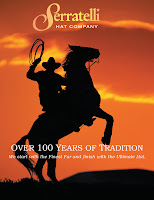 |
| Serratelli Hat Company |
Edison, has the curriculum vitae to play a role in a traditional Western, especially one where the protagonists are miners, not cowboys. Thomas Edison’s contributions to mining included new techniques in blasting, conveying, crushing, and magnetic separation. His greatest mining invention was the electric cap lamp.
As for his cowboy credentials, he has none, but his company produced the very first Western feature film. In 1903, the Edison Manufacturing Company distributed The Great Train Robbery.
Friday, July 26, 2013
These guys will kick your butt!
 |
| Bandits' Roost, Photograph by Jacob Riis, 1887
New
York City gangs were notorious. This historic photograph appealed to me because in The Return, Dancy must defeat a street-gang to save himself and his friends. The feud starts in Leadville, Colorado and follows our hero east. I liked the photo so much, I suggested that it be used for the cover.
Final cover for The Return, A Steve Dancy Tale.
This is the full cover. I especially like the cowboy shadow the designer added.
The designers did a great job. As I mentioned in Get a Spine, the spine is crucially important because it is all a browser will probably see in a bookstore. Here are the six spines for the Steve Dancy Tales.
Do people judge a book by it's cover? Do book covers sell books? Yes and yes. Need evidence? Here you go.
You might also enjoy Vintage Photograph to Western Book Cover. |
Tuesday, July 23, 2013
Has a Western mash-up ever worked?
I’m not a purist.
My own westerns are about miners instead of cowboys, my plots delve into the politics of the
frontier, and my protagonist is a wealthy Easterner. I also liked the Lone Ranger, even though it went
overboard on special effects and cuteness. I can go off the beaten track and
even enjoy oddities like Cormac McCarthy’s weird punctuation. But mash-ups?
Where did this fad come from? Mixing diametrically opposed genres is like fusion
cuisine where the main course and dessert are lumped together in a stir-fried. It may
be an interesting novelty, but it won’t change traditional menus.
I believe a fiction
writer’s job is storytelling. It must be done well, with good characterization,
but essentially the task at hand is telling a ripping good story. Effective
storytelling takes people to another place and time. It can be the Wild West or
Hogwarts School of Witchcraft and Wizardry. A mash-up tries to take the audience
to two different places at two different times. It’s jarring. Besides, these writers seem more concerned
with how clever they can blend the genres, rather than storytelling.
Many Western enthusiasts lament the lack of audience for
Western literature and film. Unfortunately, there will be no resurgence by
mashing up Westerns with the latest teen craze. It’s not that easy. Intriguing characters
with a well-crafted story arc will draw readers to any genre. Just ask Larry
McMurtry, Elmer Kelton, Louis L’Amour, Owen Wister, Jack
Schaeffer, John Ford, or Clint Eastwood.
Sunday, July 21, 2013
The Tricks Women do With Ropes
I was wandering around YouTube and found a fun video of Eleanor Powell tap dancing her way through some impressive rope tricks. Reputed to be the best female tap dancer, Powell was the first wife of Glenn Ford. For the impatient, her roping begins at about 1:30 into the video.
Powell once said, "A tap dancer is really a frustrated drummer." To prove her point, she danced with Buddy Rich, reputed to be the world's best drummer.
And now for something completely different...
Wednesday, July 17, 2013
Ink Tank does: The 8 sexiest cowgirls to kiss John Wayne
John Wayne was a lucky man. As the leading man in 142 films, he had the honor of working with somewhere near 142 leading ladies. Ink Tank does a fun job of selecting "The 8 sexiest cowgirls to kiss John Wayne."


Tuesday, June 4, 2013
Tuesday, May 28, 2013
What to give dad this Father’s Day?
The best gift is a vacation … and the least expensive
vacation is a book. A novel effortlessly transports the reader to another place
and time. With a good book, dad can take a fifteen minute vacation or while
away an entire afternoon. Either way, he
returns feeling refreshed and more content with life.
Gift books don’t have to be fiction. A respite with a
nonfiction book about a special interest can also be relaxing. The great thing
about books is that there are numerous ones for every interest, hobby, sport, or
enthusiasm. If for some reason, your dad can’t get away to fish, golf, or
whatever, he can frequently find a few minutes to read about his favorite
activity. A good book allows him to indulge himself and possibly pick up a few pointers.
There is another reason I like to give books as gifts: I can
write something personal on the flyleaf that won’t get thrown out like an old greeting
card.
The most important thing is to remind your father that you
love him. The perfect book is far more personal than most gifts because it’s aimed
directly at what you father enjoys. Put some serious thought into the right
book to show you really tried to please him.
Here are a couple previous blog postings about Father’s Day.
Father's Day Tribute
What to give for Father's Day?
Father's Day Tribute
What to give for Father's Day?
Friday, May 24, 2013
3:10 to Yuma—Make and Remake

I bought the original version of 3:10 to Yuma because I
wanted to compare it with the Russell Crowe remake. I liked both. Crowe played
a great bad guy, but Glenn Ford, normally cast as a good guy, appeared to enjoy playing a rogue. (3:10 to Yuma is now my favorite Glenn Ford movie.)
I won't discuss specifics, but there were several plot or
character improvements in the new version, however, I preferred the ending in
the 1957 film. In fact, the contrast in endings tells a lot about Hollywood’s reluctance
to embrace traditional heroes. (Elmore Leonard's short story has yet another ending.)
Production values were certainly better in the later version. It's also
fun to watch the two trailers back-to-back to see how selling movies has
advanced in the last fifty years.
If you're a film student, movie enthusiast, or just like
Westerns, both versions are great additions to a private library.
Sunday, April 21, 2013
Shark Killing Cowboy Meets Shakespeare
To me, soliloquies seem like cheating. They’re frequently a
dull way of conveying a character’s thoughts to the audience. Besides, how can
any author compete with Shakespeare at his own game?
Probably the most famous soliloquy occurs in Shakespeare’s Hamlet.
Take a gander at this. Musing has never been so much fun.
Wednesday, April 17, 2013
The Western in Advertising

Westerns
were hugely popular for over a hundred years. Not only were they popular in the
United States, but the whole world devoured them. Recently, my brother bought a
book about Chinese firecracker art. (He’s an art professor who likes quirky
design.) He sent me a couple vintage images with cowboys. It started me thinking
about advertising with a Western Theme. Once common, it’s a bit rarer today. There were some clever concepts … and some not so clever.
Monday, February 18, 2013
Preserving Western culture through photography
There are many ways to preserve our Western Culture. I prefer books, of course. I have no visual or musical talents, but I still appreciate Western film, music, and photography. Schimmel has a talent for catching a mood. Take a look at his site through the link above and enjoy some great photographs.
Monday, January 28, 2013
Buddies in the Saddle reviews The Shopkeeper
Ron Scheer at
Buddies in the Saddle has reviewed The Shopkeeper and published a
companion interview with me.
"This is an
old-fashioned western in a way that goes back to the western’s roots. For the
closest comparison, I’d offer Francis Lynde’s first novel, The Grafters, which
was published in 1905. Both novels tell of a newcomer to the West who gets
involved in a political intrigue, where influence is bought and sold, and greed
rules the workings of government."
Subscribe to:
Posts (Atom)







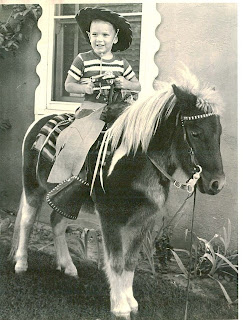


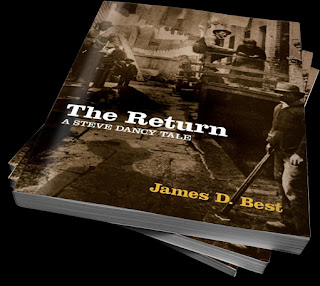






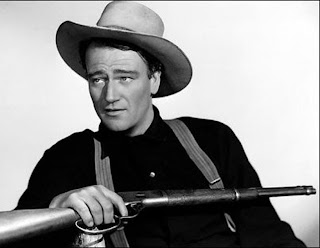

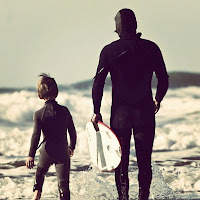







.jpg)